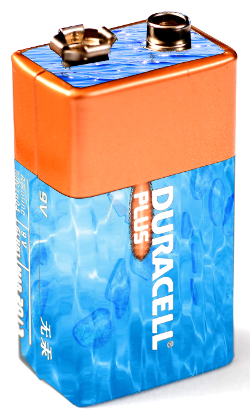New heights for water battery
 An experimental new battery uses water as a central ingredient.
An experimental new battery uses water as a central ingredient.
Swiss research engineers have succeeded in doubling the electrochemical stability of water with a special saline solution.
The researchers are working on ways to use water as an electrolyte because it is inexpensive, readily available, non-flammable and can conduct ions.
But water is chemically stable only up to a voltage of 1.23 volts, so it supplies three times less voltage than a customary lithium ion cell’s 3.7 volts.
Ruben-Simon Kühnel and David Reber, researchers at EMPA’s Materials for Energy Conversion department, may have discovered a solution.
They say that the salt containing electrolyte has to be liquid, and so highly concentrated that it does not contain any “excess” water.
In recent experiments, the researchers used the special salt sodium FSI (sodium bis(fluorosulfonyl)imide), which is extremely soluble in water.
In this liquid, all water molecules are grouped around the positively charged sodium cations in a hydrate shell, while hardly any unbound water molecules are present.
This saline solution displays an electrochemical stability of up to 2.6 volts.
The researchers say the discovery could be the key to inexpensive, safe battery cells.
The system has been put through a series of charging and discharging cycles in the lab.
Details are available in the video below.








 Print
Print